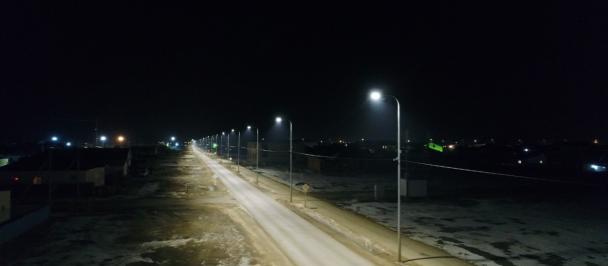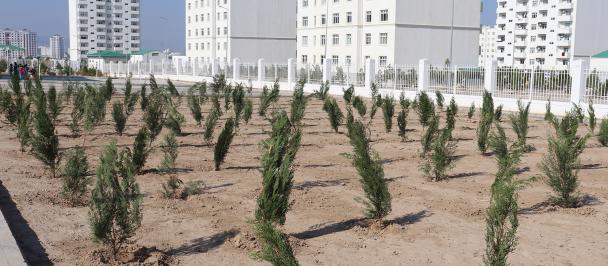Bringing light to people against all odds: the story of a Ukrainian energy worker
December 22, 2023

Olena Vaskovska, a power substation dispatcher at her workplace.
“They hit power lines. We quickly reported to the dispatcher, who was in Bakhmut at that time, that we had lost power on the power line. We had to disconnect this line and ground it, that is, make it safe. So that it could be repaired. People called and said: ‘We have no power.’ Sometimes, at the beginning, we managed to fix these power lines,” says Olena Vaskovska, a power substation dispatcher who has been working for the national power company “Ukrenergo” since 2002.
Before the full-scale invasion, Olena had worked for eight years at the 220 kV Lysychansk substation. Because of the full-scale war, she was evacuated and transferred to the Donbas 750 kV Substation, where she repeatedly came under fire, hid in the basement, and even took exams during the shelling. Due to the hostilities, in May 2022, she was moved to an operational control group in a safer area.

Olena Vaskovska, a power substation dispatcher at her workplace.
In this text, the dispatcher recalls the most frightening moments she has experienced since 24 February 2022, which, however, did not affect her dedication to the profession she has chosen.
Below is direct speech.
“Hello, Olena! Why is there no power?”
I come from a family of energy workers. I was born in the city of Sievierodonetsk. My father worked as an engineer at a factory, after which he became the chief power engineer of an agricultural company. My mother was a high-voltage network engineer. That is why love for the energy sector, as it were, runs in my blood. After finishing high school, I studied at a vocational school and qualified as an electrician for the maintenance and repair of electrical equipment.
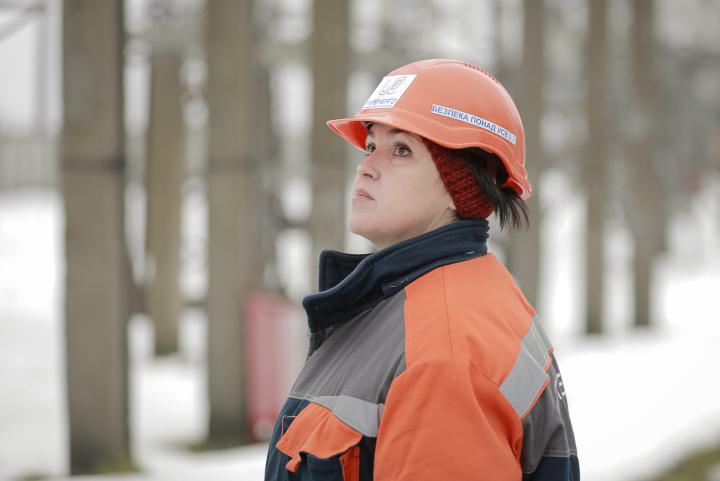
Olena Vaskovska, a power substation dispatcher at her workplace. Photo: Ksenia Nevenchenko / UNDP in Ukraine
After that I got my first job at the Sievierodonetsk Azot Chemical Process Plant. Then I moved to the 110 Skloplastyka Substation. And after that I got a job at the Lysychansk Substation, where I was promoted from a worker to a dispatcher. Over more than 20 years of being in the industry, I even worked in Kyiv. However, I’m upset the most about my dear Lysychansk Substation, as I don’t know whether I’ll ever see it again.
My job is to practically constantly oversee the operation of substation equipment. If an emergency occurs, the dispatcher must deal with it as quickly as possible to make sure people have heat and power. In order for the equipment to operate continuously and smoothly, it must be repaired. And the task of a dispatcher is to ensure repair teams can access the equipment safely.
As soon as we lose power I hear: “Hello, Olena! Do you know why the power is out?"
And I say: “Yes, I know!”
“Well, when will we have power back?”
And I say that when the emergency situation is dealt with, the power will come back.
At the Lysychansk Substation
I was to go on shift on 24 February 2022. At 7 am, my boss called and said: “Don’t go to work. The war has started.” I said: “How so? We have our night shift there. I need to replace them.” And then an order was issued to replace the shift. From then on, we worked on a 24-hour on, 24-hour off basis. And only if our boss called and told us to.
Then massive shelling began, power lines were cut.
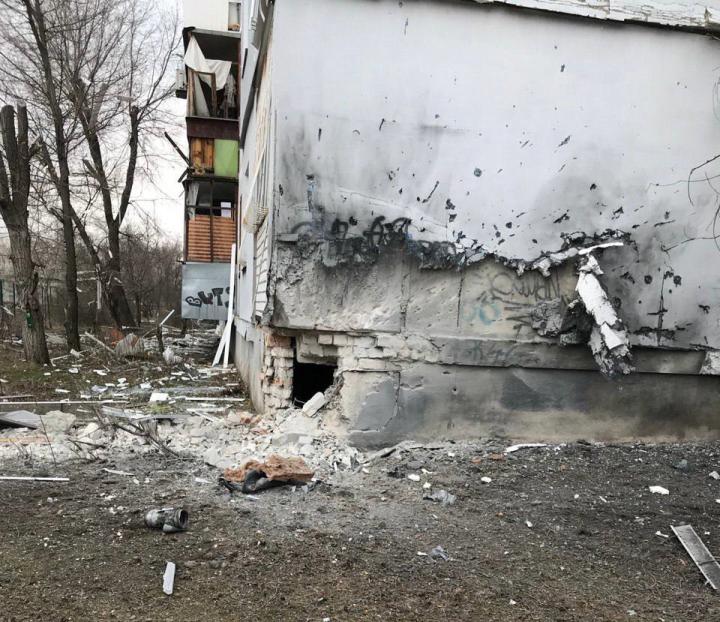
The house and basement where Olena hid during the war. Severodonetsk, 2022. Photo: Olena Vaskovska
When they shelled the power lines and shattered them, power went out. And what is important to people? Light, warmth…
When the shelling subsided, we tried to switch lines as often as possible to supply power to consumers via backup lines. We ventured outside, minding our steps, because there could be mines on the ground. At work, I managed to hold on somehow, but at home, everything inside me got tight, and I couldn’t breathe. I lost seven kilograms over two weeks because of worrying.
I went to work with a backpack that had enough food to last me for two days, because I didn’t know how long I would have to stay there. I remember collecting power banks in a basement in which up to 200 people were hiding, and taking them with me to work so that I could charge them.
Soon after that, not only critical infrastructure, but also civilian infrastructure came under constant fire. My house was hit five times.
Shortly after that I left the city.
At the Donbas Substation
One day my boss called me and said: “They have vacancies at the 750 Donbas Substation. They are short-handed there. Would you like to work there?"
I accepted the offer almost immediately – yet I was tormented by a sense of guilt for leaving the Lysychansk Substation.
I arrived in early May and worked for almost a month. Over that short time, I learned to distinguish the various sounds of shelling: where it was coming from, and where it was going. I had already heard those sounds at home.

Olena Vaskovska, a power substation dispatcher at her workplace.
In order to be able to fully perform my duties at the Donbas Substation, I had to know the layout of the substation. I took a remote exam. I was at the substation, and my boss was next to me. At that moment, one of the biggest shelling attacks on Bakhmut took place. These shells were targeting the substation, and I heard an explosion. A residential building was hit.
Did I pass the exam? Yes.
There were few people. We worked at the substation until the last. Until the bus carrying people to work was shelled. Fortunately, the people weren’t hurt, only the bus was damaged. After that, our director said that he could not risk people’s lives, and everyone evacuated. No one works there any more.

Olena Vaskovska, a power substation dispatcher at her workplace.
Before the full-scale invasion, we went to work as if it were a celebration. We worked, and knew that any situation could be resolved. There was scheduled switching and planned works.
Now we’re doing our duties in the same way: we make decisions quickly, despite all the circumstances, because people’s lives, the full operation of electrical equipment and the power supply of the entire system depend on us. And the most important thing are the people, and making sure that they do not suffer. You bring them light and have no right to give up.
Ukraine marks Energy Worker Day on 22 December. According to Ukrenergo data, since the onset of the full-scale invasion, 345 workers have been compelled to leave their regions due to military activities. Six workers have lost their lives in the line of duty. Despite the constant danger, the company’s over 7,000 workers persist in their efforts to ensure the stable operation of Ukraine's energy system. In extreme conditions, energy professionals are continuing to provide power and light to the Ukrainian people.
Ukraine’s energy sector has sustained significant losses due to the full-scale invasion. Electricity generation and transmission capacity have been almost halved, affecting the power supply to over 12 million Ukrainians. Despite targeted attacks on energy infrastructure, recovery efforts continue.
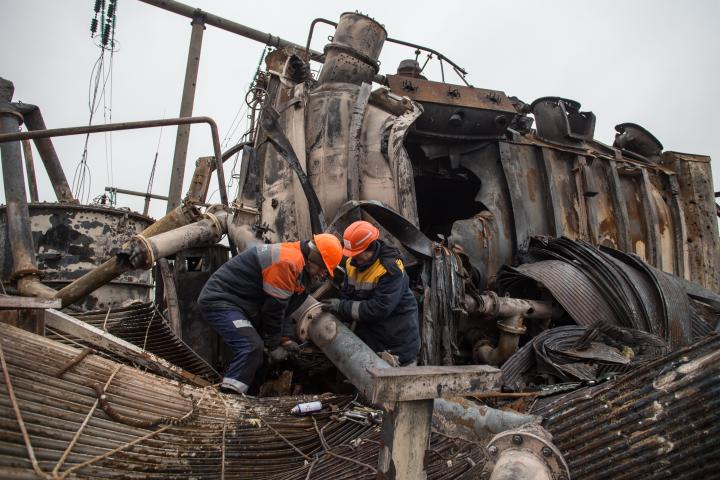
Damaged autotransformer as a result of a Russian attack, Central Ukraine, 2023. Photo: Oleksandr Ratushniak / UNDP in Ukraine
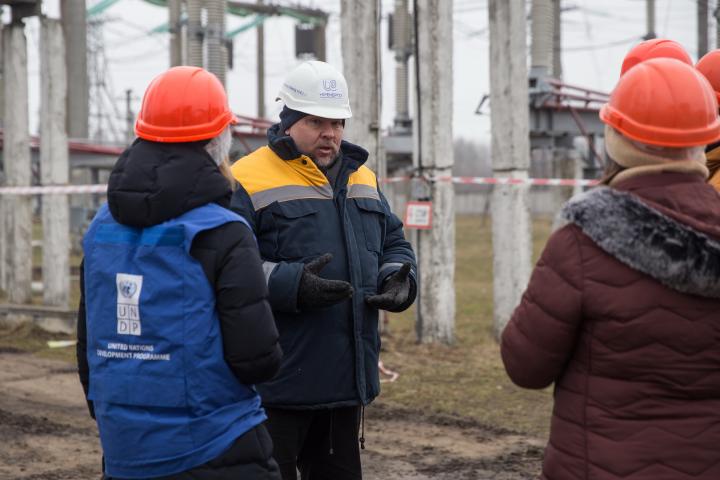
The UNDP team assesses the damage at a substation after Russian attacks, 2023. Photo: Oleksandr Ratushniak / UNDP in Ukraine
United Nations Development Programme (UNDP) in Ukraine, in partnership with Ukraine’s Ministry of Energy and Ukrenergo, with the support of the European Union, the European Investment Bank, the Global Environmental Fund, the governments of Germany, Iceland, Japan, Norway, Republic of Korea, Spain, and Sweden supports the restoration and transformation of the energy sector of Ukraine.
UNDP and partners provide support for immediate recovery of critical infrastructure, energy sector damage assessment and recovery planning, energy efficiency and green energy transition.
This story was recorded as part of a UNDP “Promotion of Human Security in Ukraine through Responding to the Multidimensional Crisis Caused by the War” project funded by the Government of Japan.

 Locations
Locations